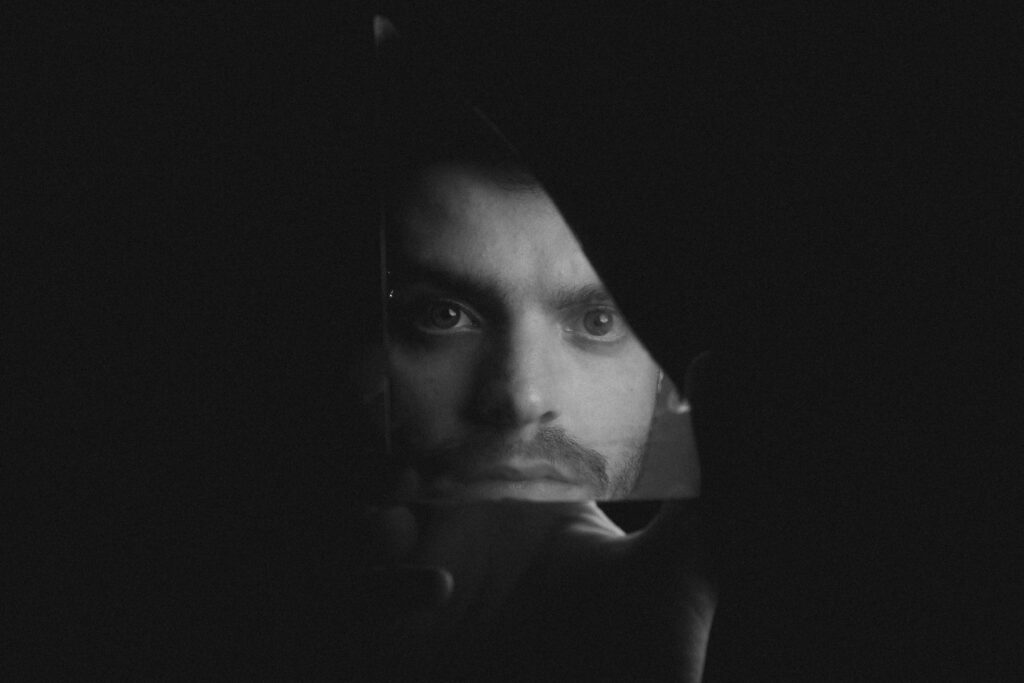We don’t always realize how deeply traumatic experiences mark us. Not in loud, obvious ways, but quietly, day to day. You forget what you walked into a room for. You reread the same sentence five times. Conversations slip from your mind like water through fingers.
It can feel like your brain is failing you.
And worse, like you are failing somehow.
Maybe you haven’t told anyone. Maybe you’re afraid to admit that pieces of your life are fuzzy or missing altogether. But I want you to know something very important right now:
“You are not broken. Your brain is protecting you.”
Trauma leaves traces. It rewires how your brain handles stress, emotion, and yes, memory. If you’ve experienced memory loss problems after emotional trauma, it’s not all in your head. It’s real, and it’s survivable. Together, we’ll walk through how trauma affects memory, and more importantly, how you can start to heal, one step at a time.
What Is Trauma and Neurological Effects on Memory
Trauma is any experience that overwhelms your ability to cope, emotionally, mentally, or physically. It can be a single event, like an assault or accident, or something prolonged, like childhood neglect or toxic relationships.

When trauma happens, your brain floods with stress hormones like cortisol. These hormones shift your brain into survival mode, useful in a crisis, but damaging when they linger. Brain scans show that trauma physically affects three main areas:
The hippocampus (your memory filing system)
The amygdala (your fear and emotion processor)
The prefrontal cortex (your decision-making center)
Too much stress can shrink the hippocampus, making it harder to record new memories or retrieve old ones. The amygdala becomes overactive, locking you in fight-or-flight mode. And the prefrontal cortex, the part that helps you think clearly, gets pushed aside in the chaos.
So if you’ve felt foggy, forgetful, or emotionally reactive since something traumatic happened, it’s not weakness. It’s neurology.
How Emotional Trauma Changes the Brain’s Memory System
When trauma doesn’t get resolved, it can turn into Post-Traumatic Stress Disorder (PTSD), a state where the brain’s alarm system stays stuck in the “on” position.
PTSD keeps cortisol high, which disrupts how memories are formed and stored. According to the Mayo Clinic and Healthline, the hippocampus can shrink under chronic stress. That’s why people with PTSD often struggle to:
Remember parts of the trauma itself
Recall day-to-day details
Stay focused in the present
The amygdala, on the other hand, becomes hypersensitive. It exaggerates fear responses, making memories of danger more intense while other types of memories fade.
“PTSD isn’t just reliving the past, it’s losing parts of the present.”
Your memory isn’t failing. It’s doing its best to protect you. But over time, this protective pattern can interfere with your life, work, and relationships.
Types of Trauma and Memory Loss
Trauma comes in many forms. Some of it is obvious: accidents, violence, war. Other trauma is hidden, like childhood neglect, emotional abuse, or years of walking on eggshells.
Mental health experts call these “Big T” traumas and “little t” traumas, but both can affect memory.
Big-T trauma includes major events like assault, accidents, war, or sudden loss.
Little-t trauma refers to things like chronic stress, emotional neglect, microaggressions, or unstable home environments.
Both types can impact the brain in similar ways, especially if they’re repeated over time.
One powerful example is dissociative amnesia, where your brain blocks out parts of an experience too painful to remember. This can be:
Forgetting an entire traumatic event
Losing blocks of time around it
Or feeling like certain memories are blurry, out of order, or missing

According to the Cleveland Clinic and The Guardian, dissociative amnesia often shows up in survivors of childhood trauma or intense emotional overload. The mind “tucks away” those memories to prevent further psychological harm. It’s not you forgetting, it’s your brain keeping you safe.
“When trauma overwhelms us, the brain sometimes chooses forgetting as a form of mercy.”
Working Memory and Trauma
Working memory is like your mental sticky note, it helps you keep track of small bits of information while you’re doing something else. But trauma can erase those notes before you finish using them.
Studies show that trauma impairs the prefrontal cortex, the area responsible for working memory. This leads to:
Losing your train of thought mid-conversation
Forgetting appointments or to-do list items
Struggling to follow directions
Feeling “foggy” or easily overwhelmed by multitasking
It’s not a character flaw, it’s cognitive overload. Your brain is juggling too much emotional data to keep hold of day-to-day tasks.
According to Dementech and Healthline, these disruptions are especially common in PTSD, where the mind is constantly scanning for threats. This overload leaves little room for remembering what you were just told or planning ahead.
“Your brain isn’t broken, it’s buffering.”
Trauma-Induced Memory Loss: Causes and Symptoms
The causes of trauma-induced memory loss include:
- Emotional trauma (abuse, grief, neglect)
- Physical trauma (accidents, injuries)
- PTSD or complex PTSD
- Chronic stress or anxiety
- Dissociation or “mental shutdown”
Symptoms include:
- Memory gaps around traumatic events
- Confusion or feeling disoriented
- Trouble learning new things
- Repeatedly losing items or forgetting plans
- Feeling detached or “not really here”

You may also feel like memories are fragmented, flashes without context, or like someone else’s life. This isn’t unusual. It’s a survival response.
Why Everyday Memories Slip Away After Trauma
Trauma doesn’t just affect memories of the trauma, it can hijack daily life too.
Episodic memory (like recalling your last birthday) can feel foggy. Working memory (short-term retention) takes a hit. Even prospective memory (remembering to do things in the future) often breaks down.
Sleep problems, anxiety, and hypervigilance all pile on, making it hard to focus, remember, or plan. Studies show that people with PTSD and depression often struggle to retain even ordinary information, like conversations or routines.
“If it feels like your memories are falling through the cracks, it’s because trauma widens the gaps. But those gaps can be repaired.”
Finding Help for Trauma-Induced Memory Loss
The most important thing to know: you can heal.
The first step is seeking help from a therapist trained in trauma. Treatments like:
- EMDR (Eye Movement Desensitization and Reprocessing)
- Trauma-informed CBT
- Exposure therapy
- Somatic or body-based therapies
…can help reconnect you with missing memories, reduce PTSD symptoms, and restore clarity.
It also helps to talk to someone you trust. A loved one, support group, or even a therapist hotline can offer you grounding, connection, and perspective.
“You don’t have to walk this path alone. Healing happens in relationships, not isolation.”
How to Fix PTSD-Related Memory Loss: Daily Habits for Healing

Here are science-backed, therapist-approved ways to gently improve your memory while you heal:
1. Get therapy and, if needed, medication Therapy rewires thought patterns. Medications like SSRIs can calm the nervous system enough for your brain to start working normally again.
2. Stay active Light exercise boosts blood flow and mood. Yoga, walking, or swimming can reduce stress and help you feel grounded.
3. Prioritize sleep Sleep is when memories are formed and stored. Build a routine: avoid screens before bed, dim lights, and consider relaxation music or apps.
4. Eat for your brain Foods rich in omega-3s, leafy greens, berries, and lean protein help cognitive function. Avoid too much caffeine or sugar, which can worsen anxiety.
5. Use memory aids Don’t be afraid to rely on reminders. Notes, alarms, to-do apps, sticky notes, these are tools, not crutches.
6. Lean on someone A trusted friend can help you feel less alone and even gently remind you of things when needed.
These steps won’t change everything overnight, but they’re small, steady bricks in rebuilding your confidence and clarity.
Conclusion: You’re Still You — Just Healing
Let’s go back to where we started. You’ve been feeling scattered. Maybe even lost. But now you know: there’s a reason, and there’s a way through.
“You’re not broken. You’re healing.”
What you’ve been experiencing isn’t random or your fault, emotional trauma and memory loss are deeply connected. This isn’t a personality flaw; it’s your brain doing its best to survive something it wasn’t prepared for. And the beautiful thing about our minds? They’re resilient. With time, care, and connection, the pieces begin to come back.
So be gentle with yourself. Take one small step today, whether that’s talking to a friend, making a therapy appointment, or simply breathing deeply. You’ve already started the most important journey of all: coming home to yourself.
Gentle Next Step
If any part of this article felt like your story, consider talking to someone about it. Whether it’s a therapist, a support group, or even a trusted friend, you don’t have to hold this alone.
Your story isn’t over, it’s unfolding. And memory, like healing, can return in time.
